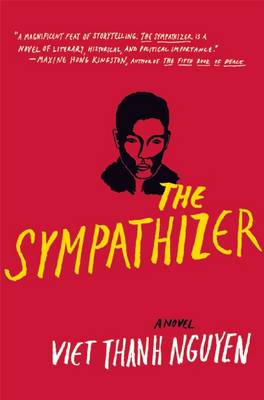Reviewed by clementine on
The story was incredibly fast-moving and compelling, as well. I read this one quite quickly and never felt like it dragged. It was exciting and interesting, both plot-wise and as a critique of American military imperialism, which is one of my favourite things to critique. I loved that the book functioned as the protagonist's confession and that the commandant had edited it; it creates an unreliable narrator and makes us question what we have read. What is being left out, embellished, or changed?
I feel that a lot of the reviews on Goodreads are missing the satirical element to the novel: it's not just a straightforward representation of the Vietnam war. There is a lot of irony in the novel. One obvious thing is that our narrator is supposedly a Communist double agent but seems rather impotent when it comes to actually executing any plans for his side. Rather, he takes part in a lot of actions that aid the nationalists and basically does nothing for the Communist cause. There's also the question of representation in the novel; Nguyen quotes Marx saying "They cannot represent themselves; they must be represented", which of course we may read extensive critiques of in Said's Orientalism or Spivak's "Can The Subaltern Speak?" In this case, representation is fractured. Though our narrator is Vietnamese, we do not see most of the action of the war as for the bulk of the novel he's living his life in Los Angeles. Most of the "war scenes" in the novel are part of the film the narrator works on. And the true subaltern - the civilians, the women, the (suspected) Communist sympathizers who are tortured and killed - cannot represent themselves.
Although it doesn't take away from my enjoyment of this book, I will note that there is a noticeable lack of developed female characters. This book does not, for example, pass the Bechdel test. Most of the female characters meet a grisly end. None, with the possible exception of Ms. Mori, are particularly well-developed. I'd have loved to see more of Ms. Mori, a rare female spark in the novel. Another irony of the book is that where our protagonist complains that the rape scene in the film is unnecessary, there is of course a very graphic rape scene at the end of the novel which he describes. I suppose this approach to the female characters is ironic as well, part of this question of representation.
I really loved this book. It was intelligent, interesting, and incredibly well-written. It raises a lot of interesting questions and ideas to think about. It's one that I'm sure I'll reread at some point.
Reading updates
- Started reading
- 9 December, 2016: Finished reading
- 9 December, 2016: Reviewed
